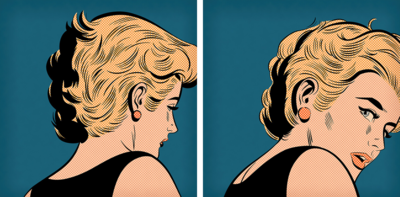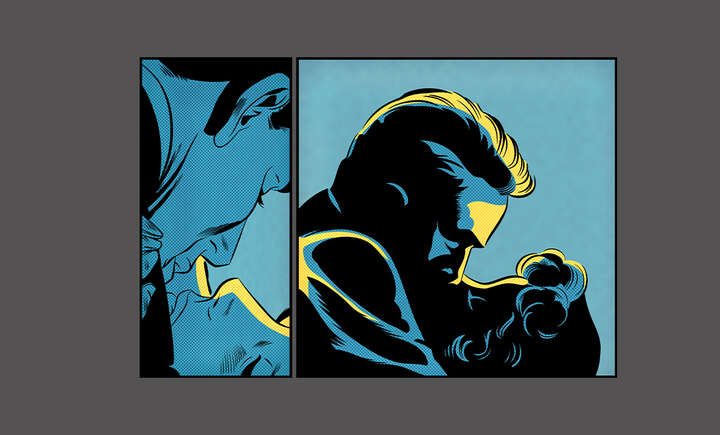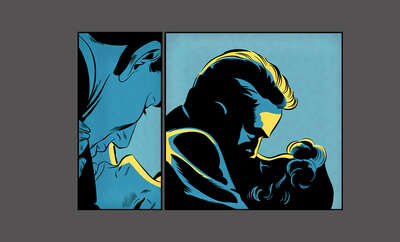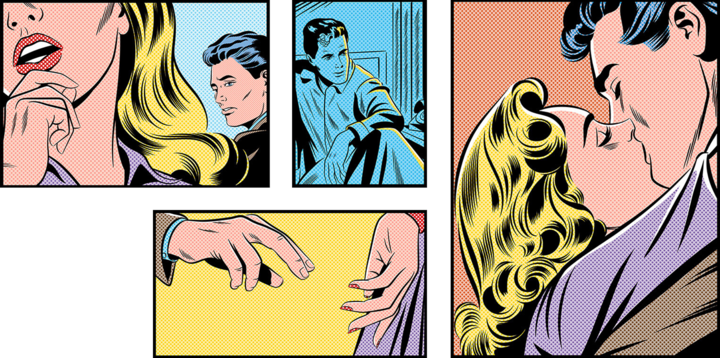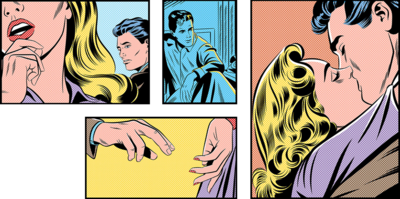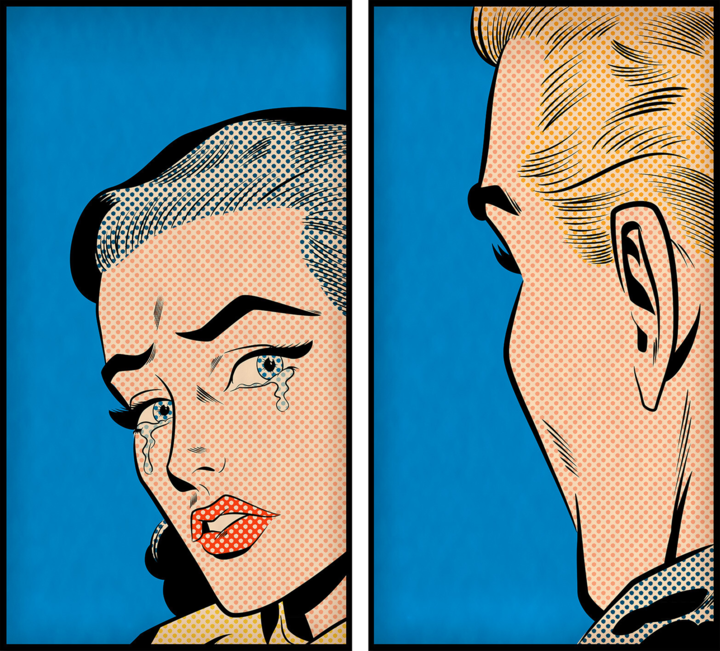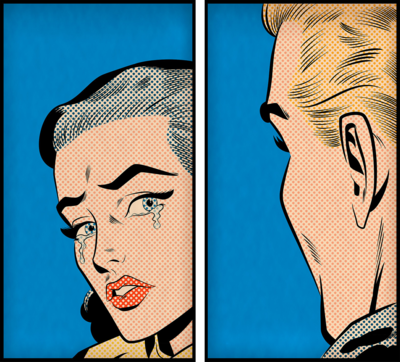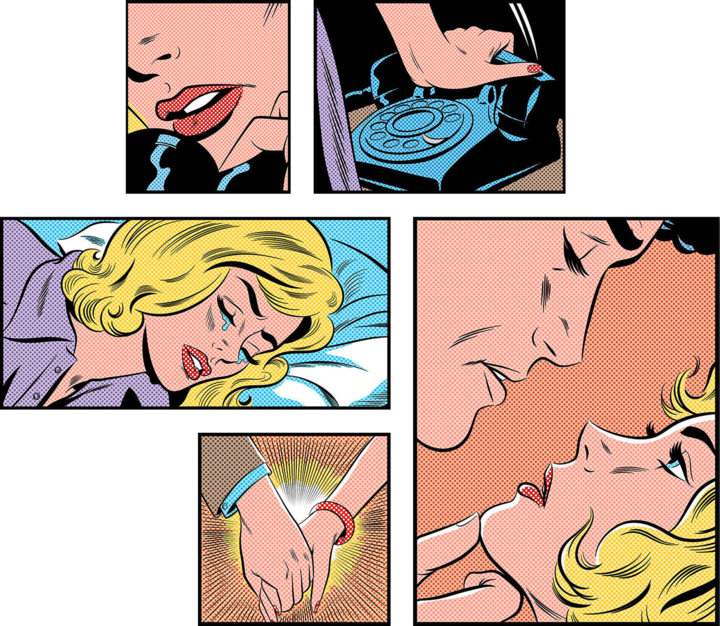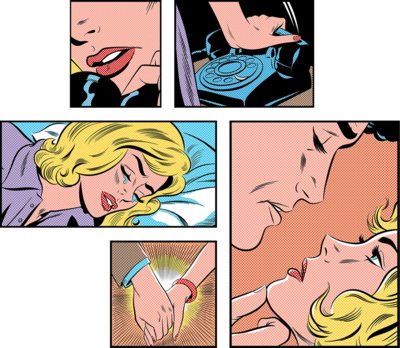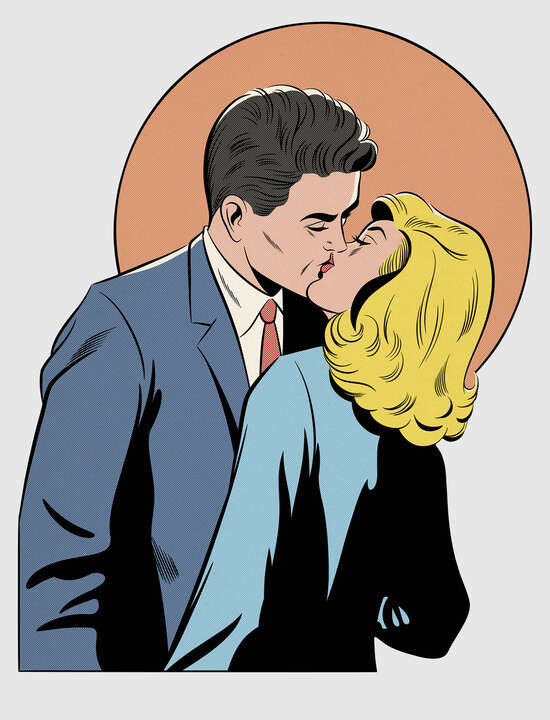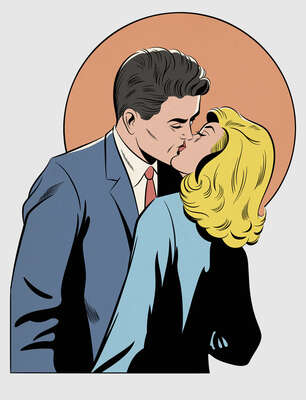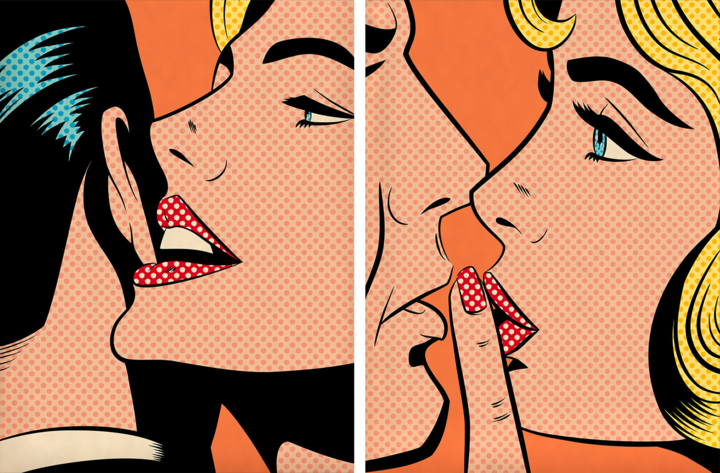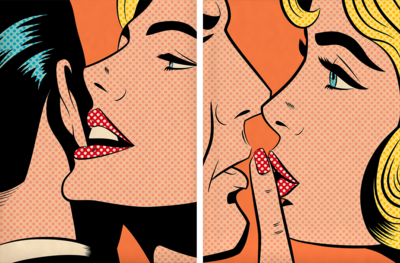Introduction
Cut-Outs
With his cut-outs, Joe McDermott covers new artistic terrain while remaining faithful to his distinctive stylistic approach. The aesthetic of the new pieces flows naturally from the artist’s retro comic style, which he employs to re-explore the universal theme of love in an engrossing and dramatic way.
Theses cut-outs, a modern re-interpretation of the paper cut-out, have a tradition in art-history, where the medium has been used by famous artists such as Henri Matisse. In recent years, the contemporary art scene has fallen back in love with this format, the work of Alex Katz being a prominent example.
McDermott’s decision to pursue this dramatic, innovative art form represents a marked development of his oeuvre. His graphic approach – clearly defined and uncomplicated – is practically made for this medium. The artist’s cut-outs place Pop Art centre stage, keeping with the tradition of his role models, yet also reflective of the current zeitgeist.
Joe McDermott: Of Deception and Desire
An expression frozen for eternity, enlarged tears, a kiss in close up. Everything is oversized, exaggerated, and presented in a simplistic comic style. It is only through the images of Joe McDermott, inspired by comics and the Pop Art genre, however, that these otherwise hidden emotions find their true expression.
Grand, emotional gestures play a central role in McDermott’s series on deception and desire: longing glances, heartfelt embraces, doubt and disappointment. “I take my inspiration from a dramatic situation or an absurd comment, and then try to visualise how people would react to it.” Icons of a new, retro-inspired Pop Art have emerged.
McDermott follows in the footsteps of the comic artists of the 1950s and 1960s. He sees the earlier works of the Pop Art master Roy Lichtenstein as distinctive pieces in the history of art. While Lichtenstein used comics in painting, however, McDermott produces his illustrations digitally, using only the computer.
The link to Roy Lichtenstein goes even deeper, however, and covers not only content, but also technique. The distinctive dots in McDermott’s illustrations are a play on the so-called Benday Dots, a printing technique in which a surface colour was created using small dots in primary colours. Comic books used this technique in the 1950s and 1960s to produce shading and secondary colours in a cost effective way. The technique became an important part of art history, however, through the work of Roy Lichtenstein, who adopted this technique in his painting.
Bio
| 1980 | Born in Red Bank, USA |
| 1998-2002 | Studies of history of art, Messiah College, Grantham, USA |
| seit 2010 | Works as illustrator |
| Lives and works in Philadelphia, USA |
